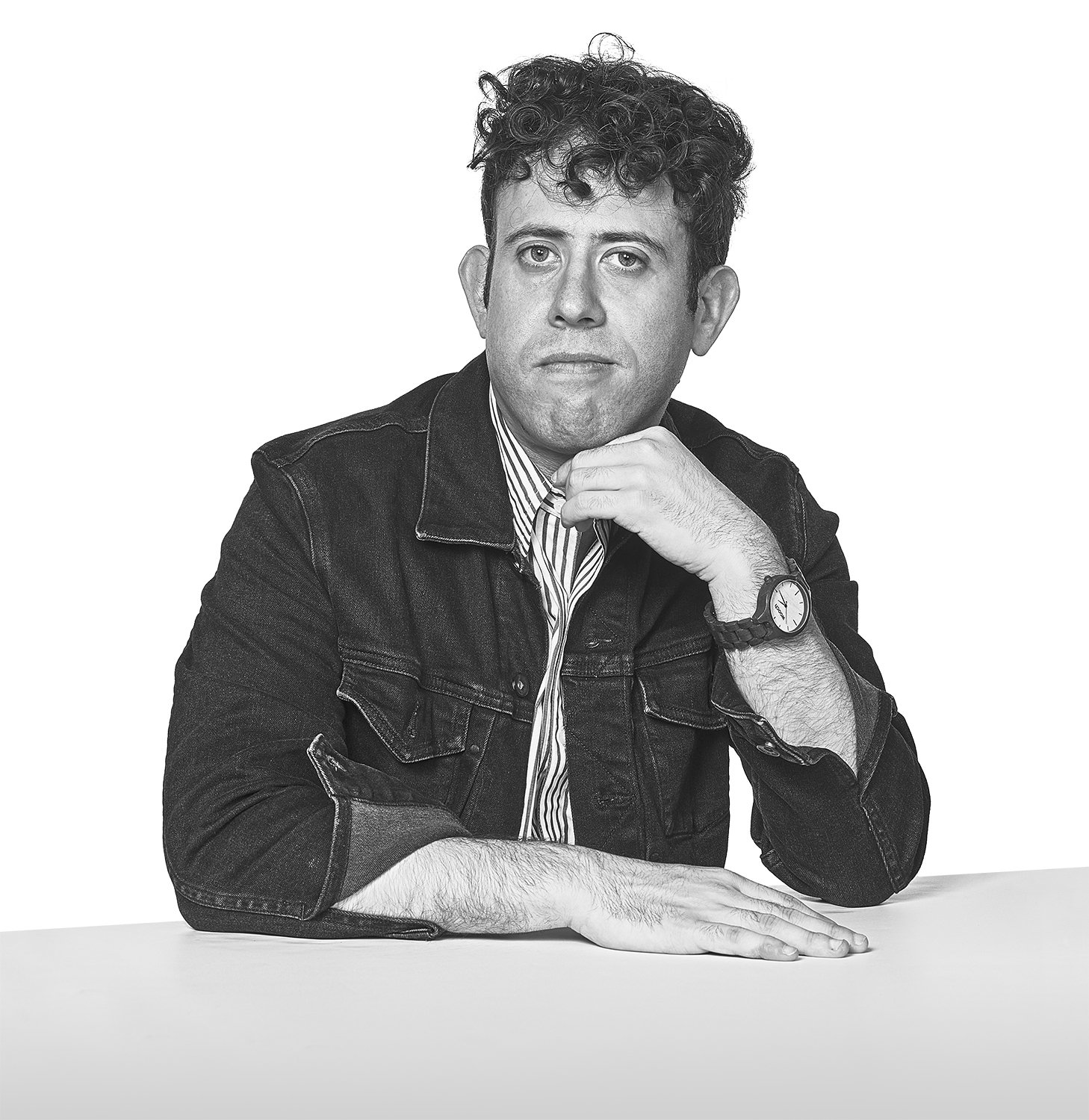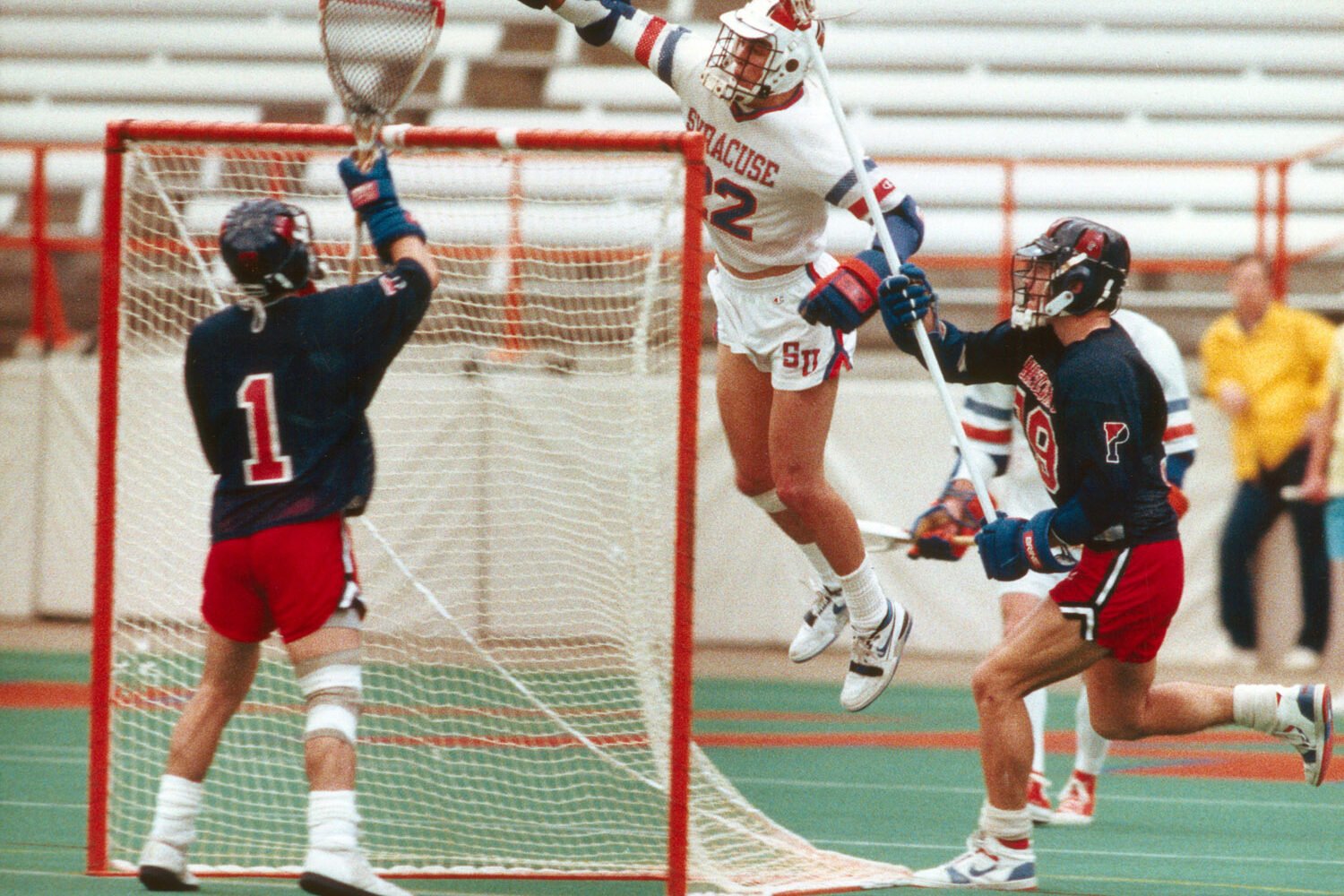A brief aside in James Kirchick’s sweeping new book, Secret City: The Hidden History of Gay Washington, recounts how a Dupont Circle diner became a midcentury gay haven: Two men were covertly holding hands under the table, and a bartender came over to tell them they didn’t have to hide. Word spread, and Annie’s Paramount Steakhouse became one of DC’s quintessential gay haunts. Throughout Secret City, such details bump up against momentous historical events: Kirchick traces how homosexuality affected the Alger Hiss trial and the Iran-Contra affair, while making the case that Washingtonians were in the vanguard of organizing for equal rights.
Himself a gay Washingtonian, Kirchick is a journalist, a nonresident senior fellow at the Atlantic Council, and a columnist at Tablet. A writer and thinker with a conservative bent, he eschews the term “queer,” objecting to its “radical political connotations.” I met up with him at Annie’s, where we spoke over the music of Elton John and Rick Astley, looking out on rainbow paper lanterns strung across the sidewalk.
The title of the book is Secret City. Can you talk about the role of secrecy in the history of the gay-rights movement?
The book is all about that—the power of secrecy. Gay people can hide, right? It’s a double-edged sword. It means, on the one hand, you can survive, you can exist in institutions, and you can have equal rights, because no one knows that you’re a part of this despised minority. On the other hand, that is precisely what makes it harder to form a political consciousness, because so many people don’t want to acknowledge that they’re gay. Then you have these activists who start realizing, wait, the only enemy we have is the closet, and the closet is something that we construct, so we need the courage to come out and tell people. But it’s very hard to do that. Not everyone is in the position; not everyone has the privilege or the courage.
Beginning in the 1950s, Washington was ground zero of the Lavender Scare, during which tens of thousands of federal employees were fired for being gay. But DC was also the site of many groundbreaking moments in gay history. Frank Kameny, for instance, was a victim of the scare, but getting fired led him to become one of America’s first gay-rights activists.
Frank Kameny is really the first openly gay person in America. In 1957, he’s basically saying, “Yeah, I’m gay, I’m a homosexual, and you have to treat me like an equal.” That takes guts. There was this whole notion of gay [government employees] being a threat to national security because they’re blackmailable. But once you’re out of the closet, then you can’t be blackmailed. What Frank realized is that once it’s no longer a secret, the power is gone.
Kameny was instrumental in organizing the DC chapter of the Mattachine Society, one of America’s first gay-rights groups.
I think the meeting of the Mattachine Society at the Hay-Adams hotel in 1961 is just as significant as Stonewall. This was the first organized political meeting of gay people, and it happened eight years before Stonewall. I get that it’s not as sexy and fun as Stonewall. It’s not drag queens throwing bricks at cops in Greenwich Village.
It’s a very DC equivalent, though.
It’s very DC. It’s a bunch of white men, all in suits. It’s not as exciting as Stonewall, but it’s extremely influential—it’s the beginning of the argument for legal equality. And if I had to make the argument, it was that style of politics that won gay rights in this country, rather than the revolutionary—you know, taking cobblestones and throwing them. It’s something I realized writing this book, that the Hay-Adams meeting belongs in the annals of history.
Can you talk more about this stylistic difference between the Mattachine Society and more radical activists?
Out of Stonewall emerged all these different radical left-wing groups that lasted not very long. They wanted us to do away with the family—like we’re going to, you know, transcend the family and live on communes. You want to live that? Fine. But that’s not really what the vast majority of gay people want. The vast majority of gay people want what straight people want: They want to have families, adopt children—you know, white picket fence. It’s like Pete Buttigieg. You can trace a direct line from the 1961 Mattachine Society—boring white guys in suits and ties—to Pete Buttigieg. That’s the style of politics that ultimately convinced people who needed convincing in this country, which were not necessarily the most open-minded, liberal people. It was the people in the heartland, the red-state people, who needed to be convinced about this stuff.
It’s respectability politics.
Yeah, respectability politics is like a curse word in academia, right? But that’s what Frank Kameny did, that’s what Mattachine did. You look at the photos of them marching outside the White House—all the women had to wear blouses and skirts that went down past the knee, the men had to wear suits and ties. And you can kind of snort at that or roll your eyes at that. But I think that was the whole point: to show that gay people were just like you.
How did writing the book influence the way you see the politics of today?
Well, we’re going through a moral panic right now with this “grooming” discourse and this bill in Florida [the “Don’t Say Gay” law]. And often when you have moral panics, sexual minorities get targeted. So in the ’50s, there was a moral panic around homosexuality. It stemmed from the Red Scare; the Lavender Scare became part of that. Then in the ’80s was the child-sex-abuse moral panic, with all these stories about satanic rituals and children being raped in daycare centers. And QAnon is a kind of social hysteria that has a sexual component to it—and now we’re going through it again [with grooming]. So you often find recurring cycles of moral panics using accusations of sexual degeneracy against your political adversaries. This goes back a long time. In the book, I trace it to Thomas Jefferson’s allies in the media calling John Adams a hermaphrodite.
How do we combat that kind of rhetoric?
You should be very skeptical about claims of conspiracies and sexual deviation—they’re almost always false. In the book, I show that all these claims that were made about gay people were wrong. There wasn’t a single example of someone blackmailed into being a spy against the United States because they were gay, but that was widely believed until the ’90s. So, yeah, it’s definitely made me more skeptical of whatever the hysteria-du-jour is.
In the book, you make an argument that gay people were in some ways a natural fit for the early conservative movement.
I would say they were attracted to the more libertarian side of it—gay men, mostly, we’re talking about. If you’re a gay person in the ’50s, the federal government is not your potential friend. African American civil-rights activists rightly saw the federal government as their ally against racist state governments. But if you’re gay, the government, period—state, local, federal—is your enemy. They are surveilling you, they’re arresting you, they’re shutting down your bars, they’re reading your mail, they’re banning your magazines.
That would lead some gay men to a more libertarian inclination. You know, Harvey Milk was a Barry Goldwater supporter. You see this strain of gay anti-communism, too: Roy Cohn and—well, whether or not [J. Edgar] Hoover was gay, who knows?
Your own political orientation is somewhat conservative, and it seems like you’re a little skeptical of identity-driven politics.
It depends. I think for the gay-rights movement, gay people were being discriminated against because they were gay, so you needed a movement to address it. But there are gay people now who want to do, like, “gays against eating animals” or things that have nothing to do with gay issues. That’s fine. But that’s not me. I think what we see now is a lot of wanting to bring gay people into a left-wing political agenda. And I feel like, no. Equal rights, marriage, military, no discrimination . . . and that’s it. Otherwise, I don’t see what the purpose is—there’s no more political salience to my sexual orientation.
I think most gay people will actually agree with that. I wrote an article for the Atlantic a couple years ago called “The Struggle for Gay Rights Is Over.” That doesn’t mean there’s not homophobia, which we see clearly. But in terms of equal rights and legal rights and protections, we are equal citizens, full stop.
So what is the frontline of fighting homophobia, then?
It’s overseas. I think that’s where we should be directing our attention, the real medieval treatment of gay people in places like Iran, Uganda, or Russia. Basically, countries that are not democracies are really suffering. That’s where the real struggle for gay rights is today.
Your book lays out an interesting ethical tension between respecting people’s personal privacy if they want to remain in the closet and the tactical utility of outing gay people, generally to shame them for advancing an anti-gay agenda in their professional life while being secretly gay.
I think outing is only defensible in a case where you have an individual who is using their power in a significant way to harm gay people. And if they are gay themselves, outing them can be justified. I don’t mean just a random staffer for a Republican congressman who voted for the Defense of Marriage Act. There was this preacher, Ted Haggard. He was condemning gay people to hell or whatever from the pulpit and then he was, you know, paying for a gay prostitute. To me, outing him is totally fair.
There’s also the moment in your book when Harvey Milk outs Oliver Sipple, the man who saved Gerald Ford from an attempted assassination, because Milk wanted the public to see an example of gay heroism.
Yeah. I mean, was that fair to Oliver Sipple? Harvey Milk made a pretty good case, right? This is right in the middle of the 1970s. We’re being condemned as pedophiles and criminals, and then a gay man—an ex-Marine, no less—saves the life of the President. Harvey Milk made the case that the public has a right to know, but it ended up ruining Oliver Sipple’s life. His family cut him out. It was really tragic.
Yeah, it’s really complex, morally speaking.
I don’t know what it’s like to want to go into politics and have [my sexuality] be a secret. But I think I show in the book that shame makes people do terrible things, so gay people in those situations are often victims, even if they’re also perpetrators, like Roy Cohn. Someone made a square on the AIDS quilt and it said “Roy Cohn: bully, coward, victim.” He victimized innocent people, absolutely—but he was also a victim of a homophobic society. The closet makes people do really awful things to themselves, to their loved ones, to their families, to random innocent people.
If there’s a villain in this, it’s the closet. It’s what straight society did to gay people for far too long—the ruin and unnecessary harm that it caused, the lives destroyed.
This interview has been edited and condensed.
This article appears in the June 2022 issue of Washingtonian.


















